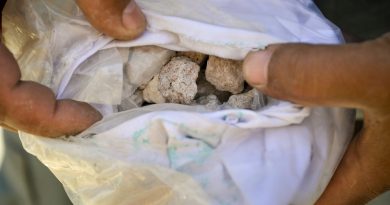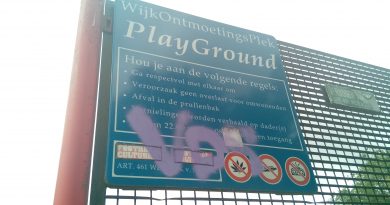Political Rifts in the Philippines Amid the War on Drugs
Adreanna Dones
Staff Writer
On February 2, 2024, political coalitions between Ferdinand Marcos Jr. and Rodrigo Duterte fell apart when former President Duterte accused current President Marcos Jr. of being a “drug addict”, reports Reuters. Marcos rebutted by reciprocating the notion with Duterte’s past statements of using fentanyl as a pain medication after a motorcycle accident. Both Duterte and Marcos Jr. belong to the two most influential families in the Philippines and their feud continues to divide the nation and halt government action within the country’s economy, social and political standings. The conflicting ideologies each party maintains on drug policies further strain relations domestically and internationally.
According to NPR, as of 2021, the International Criminal Court (ICC), has reopened the Philippine Drug War case to investigate the multitude of extrajudicial killings, and last year in 2023, “the ICC declared that the Philippines’ own investigation into the drug war – a tactic by Duterte to slow down the ICC investigation – was not sufficient and that the court would resume the probe it attempted to launch in 2021.” As the two leaders argue over drug policy, tensions grow, and the Philippines government refuses to assist the ICC in its investigations. The human rights abuses associated with the drug war began before Duterte withdrew the Philippines from the ICC’s jurisdiction in 2018, allowing the ICC justification to continue investigating them despite his previous attempt to sever relations with the organization.
Many families have had events occur where their loved ones would be murdered on the streets, in their homes, or hanging out with friends, all due to the War on Drugs that was launched the same year. In June 2016, President Rodrigo Duterte was sworn into office and would remain until June 2022. As stated in the 2022 Statistical Analysis of the Republic of the Philippines – Office of the President: Dangerous Drugs Board, about 41 percent of first-time drug users are between 15 to 19 years of age, while about 39 percent take drugs more than twice a week. According to the National Institute of Health (NIH), the main drug of abuse is methamphetamine hydrochloride, also known as “Shabu” or “poor man’s cocaine”.
Methamphetamine is a stimulant drug that greatly harms the central nervous system and connects to the brain at higher levels than its parent drug amphetamine. The National Institute on Drug Abuse reports, it “…causes increased activity and talkativeness, decreased appetite, and a pleasurable sense of well-being or euphoria.” This drug is still considered legal as a prescription, but for very specific treatments such as attention deficit hyperactivity disorder (ADHD) or weight loss, but oftentimes those prescriptions are at much lower levels than the amounts abused by drug addicts.
Duterte’s launch of the War on Drugs shook the country. Police officers were trained to shoot and kill anyone remotely connected to drugs on the spot, regardless of whether they were a threat to them or not. The Council of Foreign Relations reports that Duterte himself “encouraged the public to ‘go ahead and kill’ drug addicts.” This statement led to extreme spikes in the number of extrajudicial killings in the Philippines, as it gave an unclear confirmation to consider drug addicts as less than human. Despite the proven killings of over 6,200 drug-related subjects and countless more presumed to be affiliated with, Duterte refuses to apologize, claiming in a weekly national address recorded by Reuters, “’ I will never apologize for the deaths…Kill me, jail me, I will never apologize.’”
Witnesses offered numerous testimonies confirming the victims’ innocence, which contrasted with police claims that all the suspects presented some form of dangerous threat. This story was used to justify the large number of fatalities. Although these deaths were connected to the war on drugs, President Duterte still maintained very high percentages of public support, ranging around 86 percent in 2016, as his social and economic efforts often allowed citizens to overlook his war on drugs, writes the Associated Press. Many supported the War on Drugs movement in the Philippines as the idea of drugs being flushed out of their homelands was a dream they never believed could be a reality. The NIH furthers drugs, commonly raising law and crime issues, giving the government to push for stronger crime and punishment policies.
Image courtesy of Getty Images


